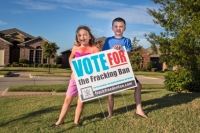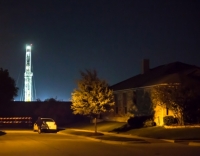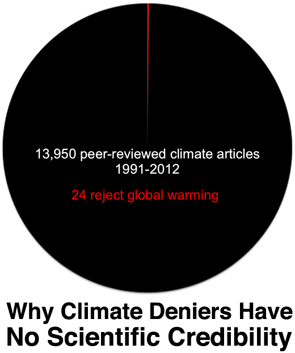At the “Media & Stakeholder Relations: Hydraulic Fracturing Initiative 2011” conference last week in Houston, Matt Pitzarella, Director of Corporate Communications and Public Affairs at Range Resources, revealed in his presentation that Range has hired Army and Marine veterans with combat experience in psychological warfare to influence communities in which Range drills for gas.
As CNBC reported, Range spokesman Matt Pitzarella boasted to the audience:
“[“…looking to other industries, in this case, the Army and the Marines. We have several former PSYOPs folks that work for us at Range because they’re very comfortable in dealing with localized issues and local governments. Really all they do is spend most of their time helping folks develop local ordinances and things like that. But very much having that understanding of PSYOPs in the Army and in the Middle East has applied very helpfully here for us in Pennsylvania.”
[**Listen: MP3**]
At that same conference, Matt Carmichael, External Affairs Manager at Anadarko Petroleum Corporation, suggested three things to attendees during his presentation:
“If you are a PR representative in this industry in this room today, I recommend you do three things. These are three things that I’ve read recently that are pretty interesting.
“(1) Download the U.S. Army/Marine Corps Counterinsurgency Manual [audible gasps from the audience], because we are dealing with an insurgency. There’s a lot of good lessons in there, and coming from a military background, I found the insight in that extremely remarkable. (2) With that said, there’s a course provided by Harvard and MIT twice a year, and it’s called ‘Dealing With an Angry Public.’ Take that course. Tied back to the Army/Marine Corps Counterinsurgency [Field] Manual, is that a lot of the officers in our military are attending this course. It gives you the tools, it gives you the media tools on how to deal with a lot of the controversy that we as an industry are dealing with. (3) Thirdly, I have a copy of “Rumsfeld's Rules.” You’re all familiar with Donald Rumsfeld – that’s kind of my bible, by the way, of how I operate.”
[**Listen: MP3**]
Carmichael is also the former Senior Manager of External Communications for Kellogg, Brown and Root (KBR), a subsidiary of Halliburton, which at one point had over 15,000 mercenaries placed in Iraq, according to the Los Angeles Times.
The Counterinsurgency (COIN) Field Manual [PDF] devotes an entire chapter to PSYOPs, confirming its utility as a major element of a counterinsurgency campaign. The COIN manual is the current U.S. military doctrine in both Iraq and Afghanistan.

























